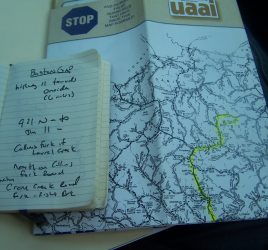Technology + the Myth of Free Markets in Appalachia
Broadband access is a top issue with the majority of study counties, especially in communities outside county seats and population centers. Rural communities lack the communications resources to bridge distances and minimize long-held feelings of isolation.
Businesses are leaving, youth are underprepared for an increasingly connected workforce, and the general rural public is missing out on the security and conveniences that their more urban counterparts are experiencing. Time and time again people remarked that “a new kind of infrastructure is needed.” Clearly, a digital divide exists in Appalachia. — from the May 12, 2013 “Strategies for Economic Improvement in Appalachia’s Distressed Rural Counties” ARC Study
I encountered the Appalachia Regional Commission in 2001 when I was working on stories for Wired.com about the convergence of technology and society. Throughout the years I’ve come to rely upon them as an accurate source of information about the region, and as a conduit for news about initiatives happening throughout the 13-state region.
Now the House Republicans are trying to defund ARC. This is problematic for Appalachia because the ARC stands as pillar for the kinds of local economic development necessary to reinvigorate the area.
As I’ve discussed previously, the reason for poverty throughout Appalachia is largely tied to national and state governments abandoning outlying communities. The ARC works counter to that.
The Fallacy of Free Markets, Technology, and Appalachia
While I am a classic libertarian, which means I believe in the right of man to be free of the reigns of control, I reject the notion that “free markets” are the sole solution for libertarianism.
Twenty years of corporations turning away from the cost of infrastructure development in Appalachia is the most compelling argument.
For the true impact of modern technology to reach Appalachia, the government must provide help build that infrastructure, which includes not only building access points that make mobile technology usable throughout the region but also support the education measures necessary to turn that infrastructure on.
I spent more than a decade living and working in the major American technology hubs (Silicon Valley, Austin, and Cambridge), and I was amazed at the distorted view very smart people had of both the impact of technology on daily life and the reach of the technology infrastructure throughout the country.
I have listened to venture capitalists and entrepreneurs from Silicon Valley, Los Angeles, and New York discuss how emerging technology will transform the country, and how it would be most beneficial for those in depressed economic regions such as Appalachia.
This premise is certainly true: The country is being transformed by technology.
What’s not true is that it’s being transformed in a way that benefits everyone. In fact the infrastructure for mobile technology lag far behind in Appalachia when compared to the rest of the country. (When I’m in Manchester, Kentucky working on my book, my mobile phone is almost completely useless as both a phone and a computer. There’s no service.)
When you listen to technology evangelists from the coast discussing the profound impact of technology on the culture, you must understand that mean “the culture that I see in the high-tech corridors where I live.”
The benefits of the profound impact of technology throughout Appalachia haven’t come just yet because corporations don’t see a value in building that out.
Organizations such as ARC provide both research and economic incentives to build communities.
Of course ARC can’t build or incentive the infrastructure building on a mass scale. For that the federal and state governments must work together. However those entities can’t get on the ground to build the local infrastructure in the same manner as ARC.
The Rub
This argument boils down to a simple idea:
- Poverty is Appalachia is the result of national companies raiding the region and abandoning it; and
- National and state governments building infrastructures tied to those corporations, and then abandoning it when the corporations went away.
So:
- In order to build a modern infrastructure, local communities need to build a ground-level infrastructure with business and education outreach; and
- national and state governments must build the technological infrastructure that supports mobile and high-speed technology.
While the ARC may not be perfect in its execution of the first part, it’s certainly one of the most important pieces in the process of transforming the region.



